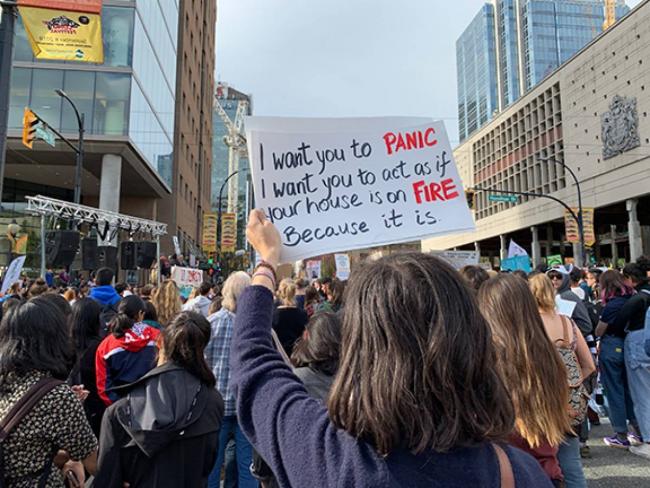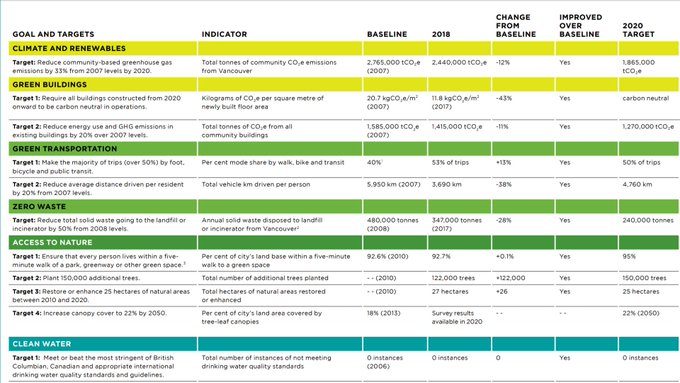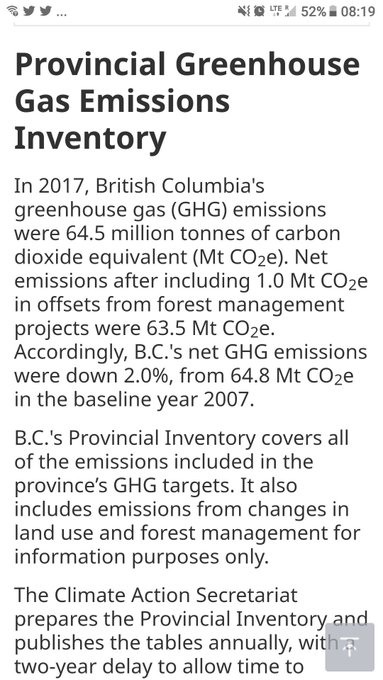The City of Vancouver is rarely described as a climate laggard.
But a report shows it is falling far short of its Greenest City Action Plan goal for reducing emissions of carbon dioxide equivalents.
The latest update indicates there has only been a 12 percent drop in greenhouse-gas emissions from 2007 to 2018.
The plan calls for a 33 percent reduction by 2020 to 1.87 million tonnes.
"It's understandable that people are worried about the cost of taking action," the update states. "That said, if we don't cut carbon, if we don't adapt our city and our economy, the cost of not taking action will be far greater."
One of the greatest dangers is that feedback loops will kick in, sending the average global temperature far higher.
A study published last year in the Proceedings of the National Academy of Sciences described the risk of a "Hothouse Earth Pathway" that could activate tipping points in a domino-like cascade.
Energy and tech consultant Aldyen Donnelly highlighted the city's failure to meet its goal in a tweet.
This came in response to a CBC News story noting that Saskatchewan will not meet its 2020 greenhouse-gas emission target.
Vancouver's performance, as reported by City of Vancouver: -12% at end 2018; nowhere near the -33% 2020 target. And that is after ~$5B spent on public transit infrastructure, City introduction of a significant parking tax & 11 years of provincial CO2 tax. Congestion prevails.
She also noted that the B.C. government has not even come close to achieving its 2020 target established by a B.C. Liberal government led by Gordon Campbell. That was overlooked in the CBC News report.
The BC government legislated a 33% cut in province-wide GHGs from 2007 levels by 2020. By the end of 2017 (the most recent reported year), they played an interesting game with forest sink estimates and still hadn't done any better than -2%. Illustration of ineffective policies.
The 2018-19 update shows that the City of Vancouver exceeded its goal in the Greenest City Action Plan of having more than 50 percent of trips by foot, bicycle, and public transit. It reached 53 percent by 2018.
And it's vastly exceeded its objective to reduce distance driven per resident by 20 percent below 2007 levels. That was down 38 percent by 2018.
However, the city has only managed to bring emissions down from existing buildings by 11 percent from 2007, whereas the goal is to cut that by 20 percent.
Earlier this year, Vancouver city council endorsed six "Big Moves" recommended by staff to achieve far greater reductions in greenhouse gas emissions.
They include a goal of 50 percent of kilometres driven in 2030 by zero-emission vehicles and that 90 percent of residents live within an easy walk or roll of their daily needs.
One of the most challenging Big Moves is ensuring that all new replacement heating and hot-water systems will be zero-emission.
About 95 percent of emissions from buildings in Vancouver are linked to the burning of natural gas for space heating and hot-water systems, according to the city.
"Eliminating these emissions is essential to meeting our 100% renewable energy target [by 2050] and heat pumps powered by low/zero-carbon electricity will be the primary enabling technology," a city staff report states.




